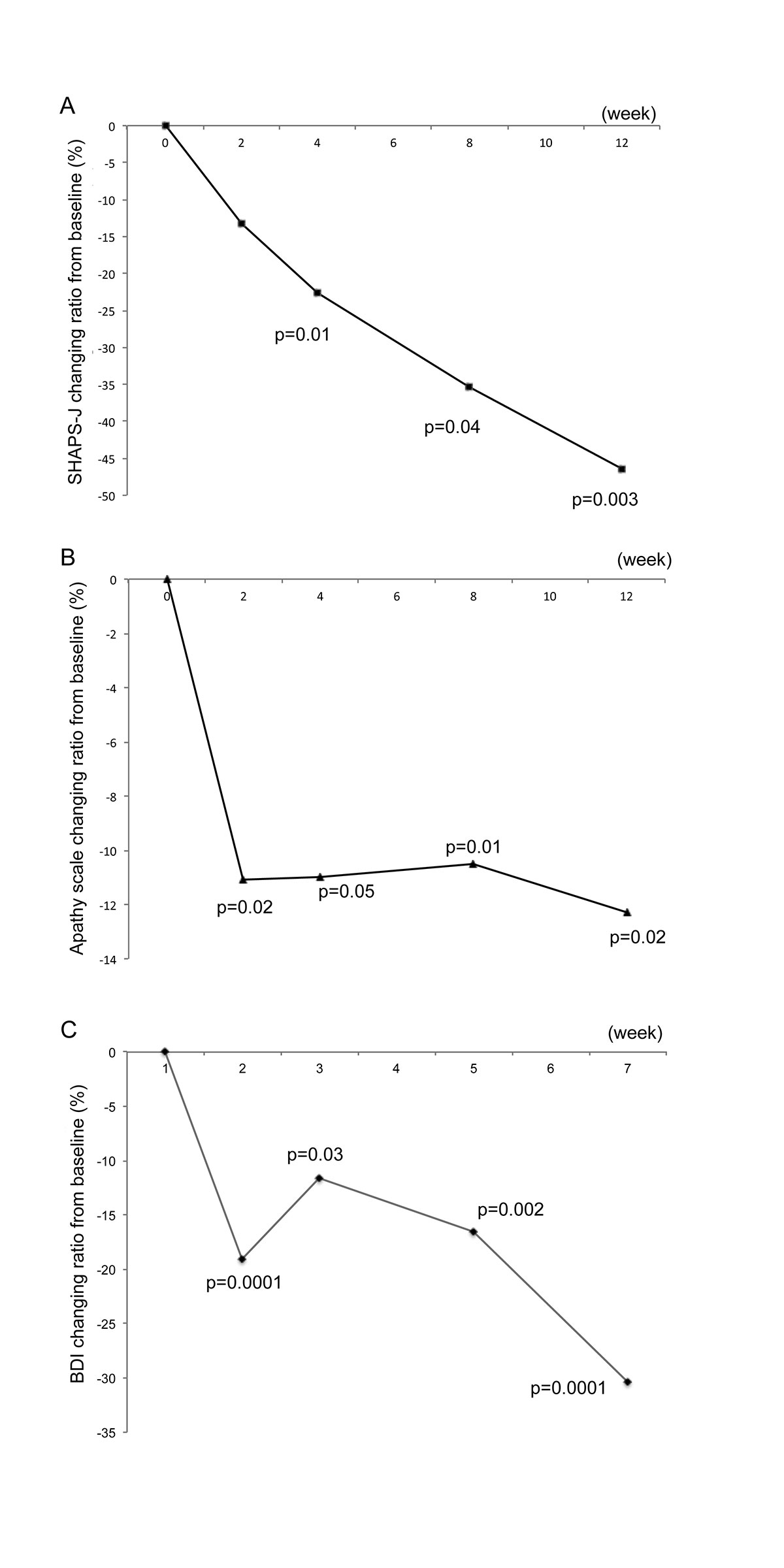Session Information
Date: Wednesday, September 25, 2019
Session Title: Non-Motor Symptoms
Session Time: 1:15pm-2:45pm
Location: Agora 3 West, Level 3
Objective: The effectiveness of istradefylline for treatment of mood disorders in patients with Parkinson’s disease (PD) was examined in an open-label trial.
Background: Depression is the most common psychiatric complication in patients with PD. Istradefylline, a new anti-parkinsonian agent with completely different mechanism, improves depression-like symptomsin an experimental disease model; however, there is no report of its effects in PD patients.
Method: Thirty PD patients were enrolled. All patients had scores of higher than cut-off level in at least one of the following batteries: Snaith-Hamilton Pleasure Scale Japanese version (SHAPS-J), Apathy scale, or Beck Depression Inventory-2nd edition(BDI). Following study enrollment, all patients received 20 mg of istradefylline, and the dose was increased to 40 mg after 4 weeks. Results from these 3batteries and the MDS-Unified Parkinson’s Disease Rating Scale (MDS-UPDRS)scorewere assessedevery 2-4 weeks until 12 weeks and the changes in these scores were analyzed.
Results: Following administration of istradefylline, the scores of SHAPS-J, Apathy scale, and BDI were significantly improved over time. Significant improvement was also found in the UPDRS score; however, no significant correlation was observed between the score change in these 3 batteriesand UPDRS motor function.
Conclusion: This is the first study to show the effectiveness of istradefylline for treatment of mood disorders in PD independent of improvement of parkinsonian motor symptoms. In the future, this should be confirmed in a double-blind placebo-controlled trial.
To cite this abstract in AMA style:
H. Nagayama, O. Kano, H. Murakami, M. Hamada, R. Sengoku, Y. Shim, T. Toda. The effect of istradefylline on mood disorders in Parkinson’s disease [abstract]. Mov Disord. 2019; 34 (suppl 2). https://www.mdsabstracts.org/abstract/the-effect-of-istradefylline-on-mood-disorders-in-parkinsons-disease/. Accessed December 11, 2025.« Back to 2019 International Congress
MDS Abstracts - https://www.mdsabstracts.org/abstract/the-effect-of-istradefylline-on-mood-disorders-in-parkinsons-disease/

